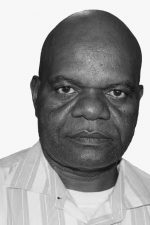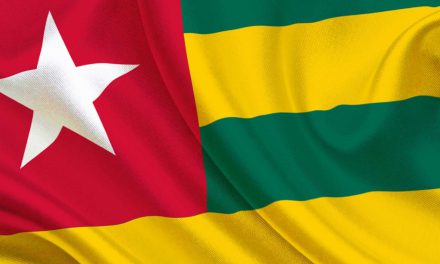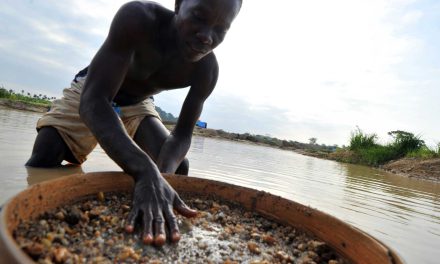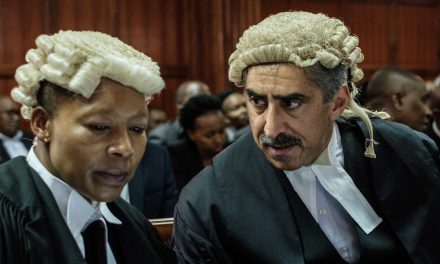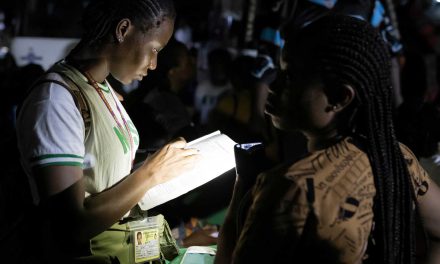Zimbabwe goes to the polls in August in what looks likely to be a brawl between the ruling Zanu PF and the opposition Citizens Coalition for Change (CCC) party.
Concerns have been raised by civil society organisations regarding the country’s ability to hold free and fair elections. The Zimbabwe Electoral Commission (ZEC), an independent body mandated to manage elections, has been accused of partisanship and alignment with Zanu PF, which has been in power since the country’s independence in 1980. Analysts say concern over the commission’s independence has resulted in people losing confidence in the voting system and has become a major cause of voter apathy.
While Zimbabwe has a good constitution on paper, the ruling party has little respect for human rights and the rule of law in practice, raising questions about the notion of constitutionality.
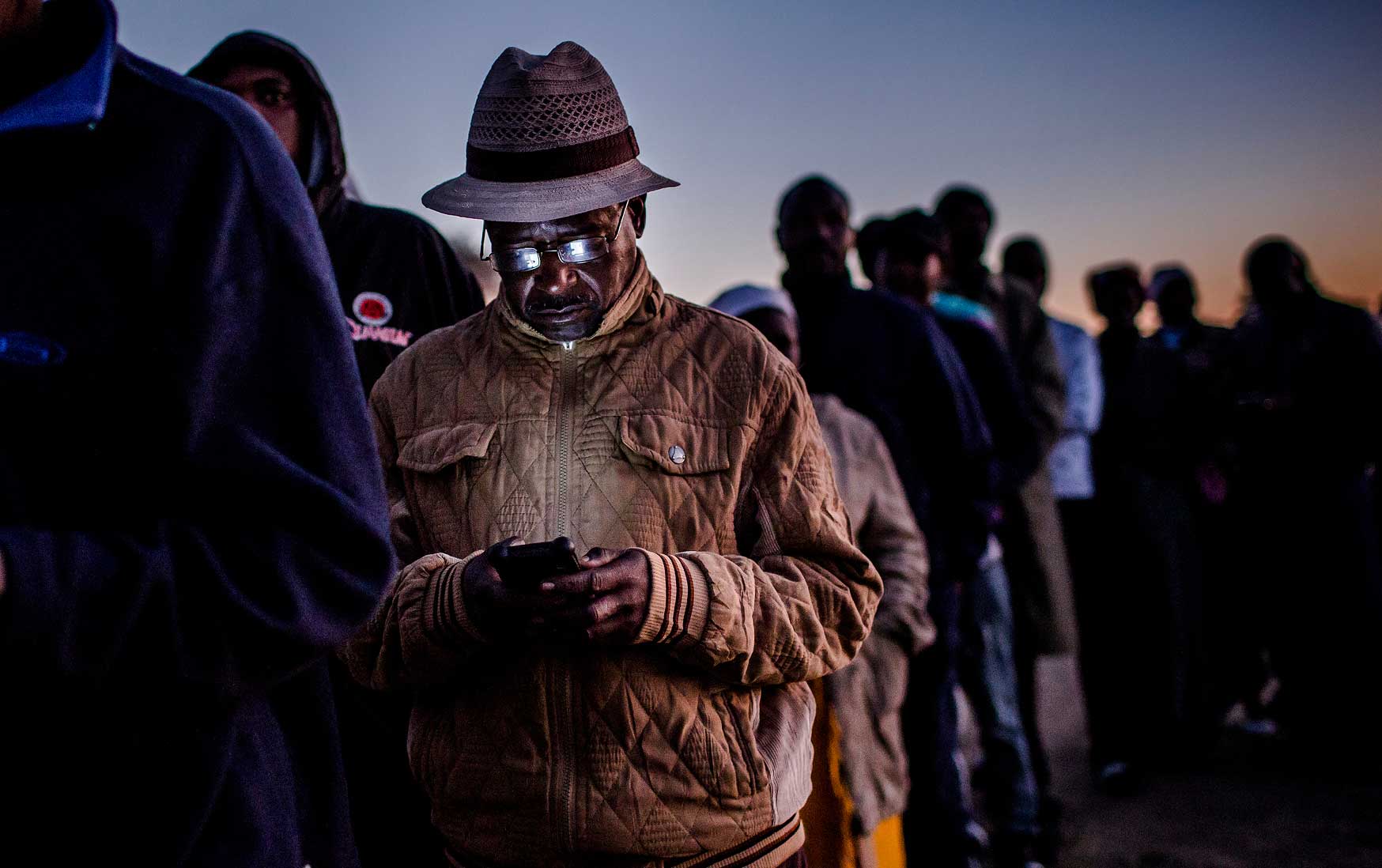
People queue early in the morning outside a polling station located in the suburb of Mbare in Zimbabwe’s capital Harare in July 2018 to vote in the first general election since their authoritarian leader Robert Mugabe was ousted. (Photo: Luis Tato / AFP)
Crisis in Zimbabwe Coalition national director Blessing Vava told Africa in Fact that it had been clear from the beginning of the so-called Second Republic that the Constitution was under siege. The Second Republic came into office in 2017 following the forced removal from office of long-serving president Robert Mugabe.
“To understand where we are going,” said Vava, “one needs to look at how, over the past five years, the Emmerson Mnangagwa administration has amended the constitution to give the president unfettered powers over the judiciary and parliament, introduced laws that are meant to curtail freedom of expression and shut down the civil and political space, and used the judiciary and state security agents to criminalise opposition political activity.
“It is against this background that as we go towards the election, the ground is tilted in favour of the ruling party, which has not hesitated to use its incumbency to crush any dissenting voices. As such, we can conclude that there is absolutely no good governance in Zimbabwe.”
CCC president Nelson Chamisa has said that Mnangagwa’s administration was engaged in “insane conduct”, describing the current situation as “criminal, illegal and unacceptable” and demanding an urgent end to the persecution of his party members and dissenting voices.
“Persecution is everywhere and all over,” Chamisa said in an interview with online media outlet New Zimbabwe in late February. “It’s a reminder that our politics is broken, and something is rotten in Zimbabwe. We must fix the rot.
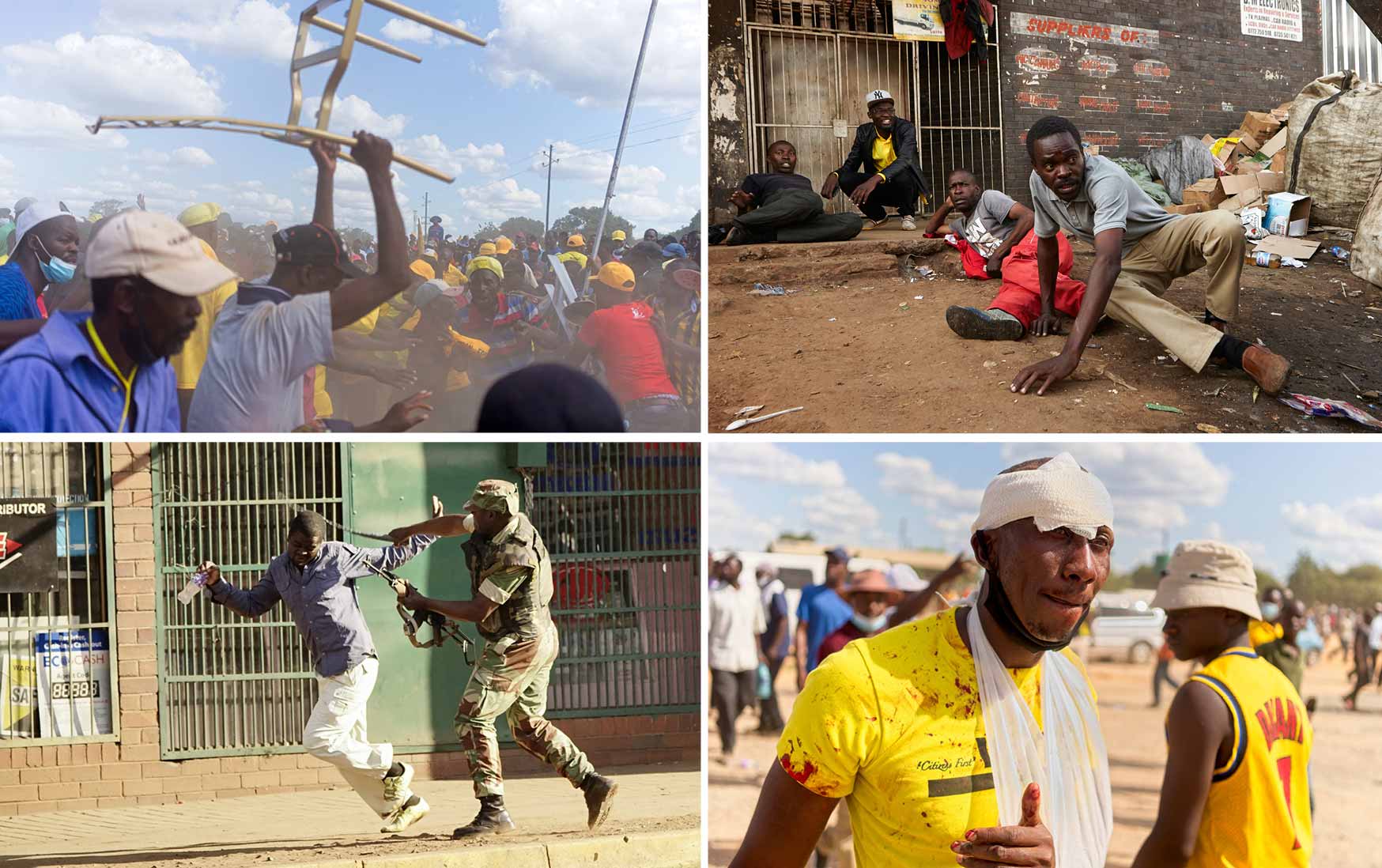
“It is rule by law, not the rule of law. It’s the weaponisation of the law and the judiciary and that is wrong.” His remarks come at a time when courts across the country are littered with cases implicating CCC activists.
While the youth constitute about 67.7% of Zimbabwe’s population, (according to the Zimbabwe Statistical Agency), they have displayed widespread disinterest in the voting process. The electoral commission’s continued failure to address concerns around vote-buying, violence, and intimidation, has had a negative effect on voter registration and will likely have an impact on voter turnout for this year’s harmonised poll, which see local and national elections held at the same time.
Takunda Tsunga, a legal and advocacy officer at the Election Resource Centre, an advocacy organisation based in Harare, told Africa in Fact that: “Citizens no longer believe the current electoral management system can deliver a credible election that expresses the will of the people.
“Since the 2018 harmonised elections, voter turnout in urban areas has averaged around 30 to 35%, while dropping to approximately 19% in areas such as Bulawayo.”
Tsunga said while Zimbabwe’s current constitutional and legislative framework allowed for free and fair elections, the electoral commission had to fully implement the law. “This reluctance [to implement the law] has resulted in the abuse of the rule of law [by the ruling Zanu PF party] and the partisan implementation of laws meant to ensure open participation in electoral processes,” he said.
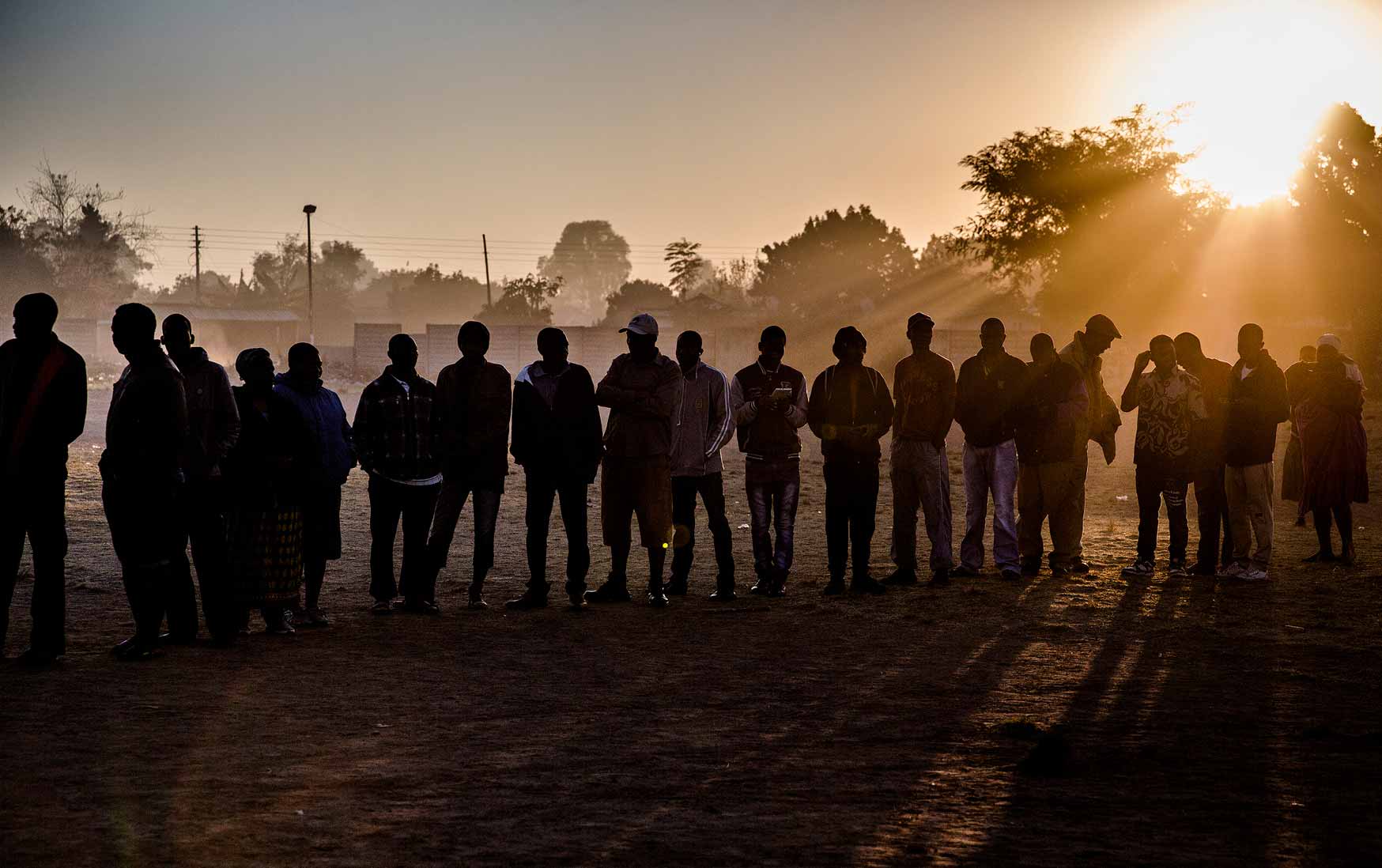
According to the Mo Ibrahim Foundation’s 2022 African Governance Index (IIAG), published in February this year, Zimbabwe ranks among the worst countries in Africa in terms of observing freedom of association and assembly.
Zimbabwe was said to be failing to promote political pluralism, a free civic society, and democratic elections.
The IIAG ranks Zimbabwe 29 out of the 55 countries in terms of good governance — one of the worst rankings compared to its southern African neighbours. Zimbabwe is only ranked better than the Kingdom of Eswatini (35 in the ranking), which has recently been in the news for the wrong reasons, including the killing of human rights lawyer Thulani Maseko. Botswana sits at five, South Africa at six, Zambia at 24 and Mozambique at 26.
Zimbabwe scored badly on political and civil liberties. The country was given 12.5% on freedom of association, 26.9% on political pluralism, 14.1% on civil society space and 31.3% on democratic elections. On a positive note, Zimbabwe scored 100% in terms of laws that protect women from violence. The research came barely a month after the Zimbabwe Democracy Institute released another report showing a shrinking democratic space in the post-Robert Mugabe era.
“The regime in Harare used COVID-19 lockdown to clamp down on civil liberties. They have used draconian laws such as MOPA [the Maintenance of Peace and Order Act] to ban political gatherings and this is likely to intensify as the 2023 general elections draw closer,” said Witwatersrand University-based political analyst Romeo Chasara.
Zimbabwe Electoral Commission’s (now former – he was relieved of his duties just at the time of writing) spokesperson Jasper Mangwana argued, however, that citizens haven’t lost faith in the credibility of the commission adding that, ahead of this year’s elections, the commission had raised awareness about the electoral process.
“ZEC’s independence is guaranteed in the constitution and its policies come from the commissioners who are appointed by the law,” he told Global Press Journal.
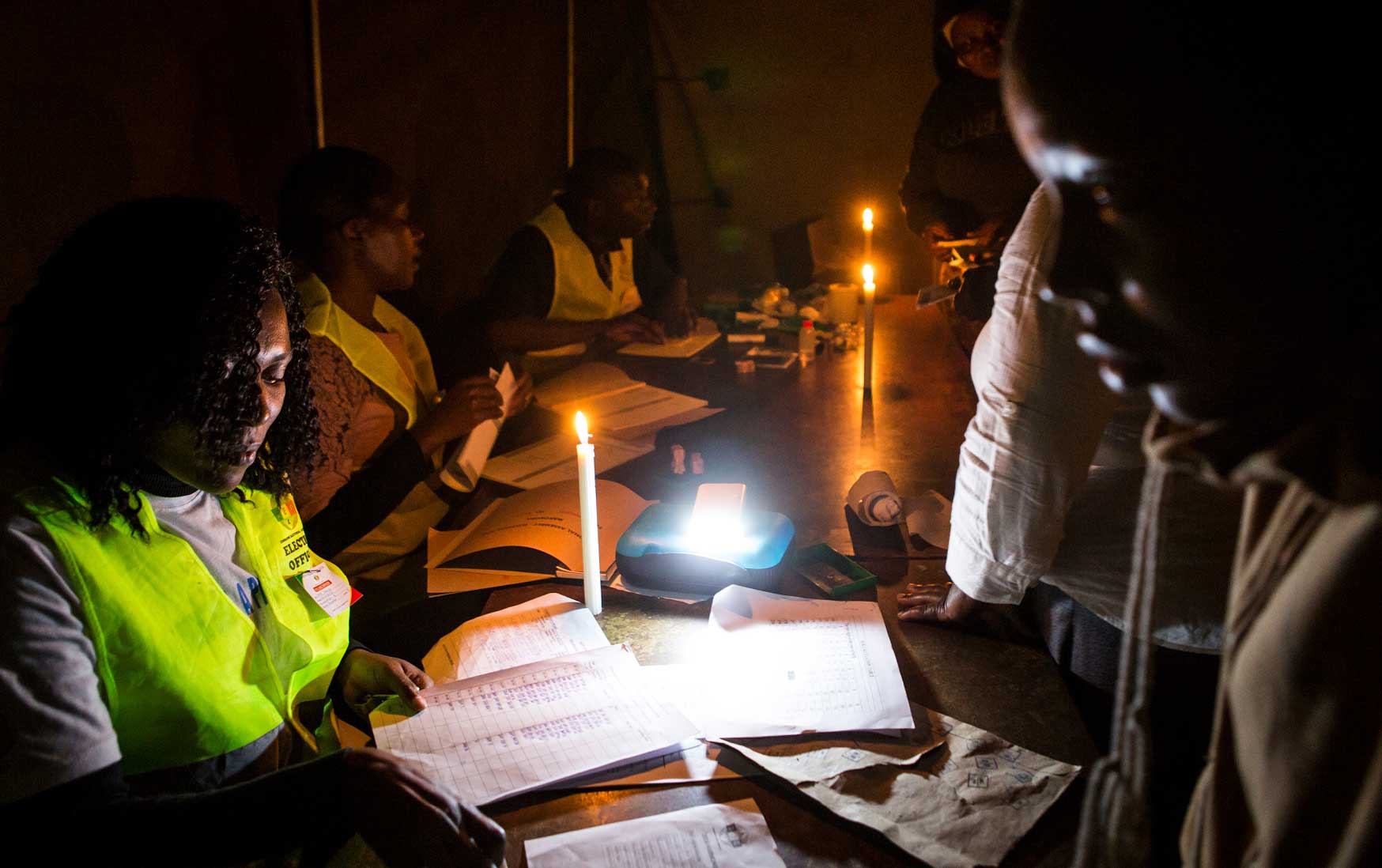
In the wake of rising intolerance to dissenting voices, regional human rights defenders (HRDs) have called on the Southern African Development Community (SADC) to rally its member states to respect constitutional rights.
This came out in a joint communiqué by the Southern African Human Rights Defenders Network and the Zimbabwe Human Rights NGO Forum (NGO Forum) following an increase in cases of harassment of HRDS in SADC countries. The communiqué was released in late February.
In Zimbabwe, in 2022 alone, the NGO Forum said it recorded 2,683 cases of violations, which included assaults, abductions, verbal threats, arbitrary arrests, detentions and prosecutions against human rights activists.
“The state has particularly weaponised its criminal justice system to target human rights defenders by subjecting them to prolonged pre-trial detention without access to bail, and malicious and lengthy prosecutions,” the statement read.
Cases against HRDs are expected to escalate as Zimbabwe heads towards August’s general elections. But Mnangagwa begs to differ, arguing that Zimbabwe upholds good governance.
He told delegates attending the Zimbabwe Second Structured Dialogue Platform Meeting (a forum for discussion between the government and its development partners and creditors) that the country is upholding tenets of good governance and democracy as part of efforts to resolve its debt crisis.
In February, Zimbabwe hosted the second structured meeting, which sought to investigate economic and governance issues constraining arrears clearance and debt resolution, headlined by African Development Bank (AfDB) president Akinumwi Adesina and former Mozambican president Joaquim Chissano. Harare has been struggling to settle arrears with international financial institutions such as the World Bank, which has seen it fail to get loans.
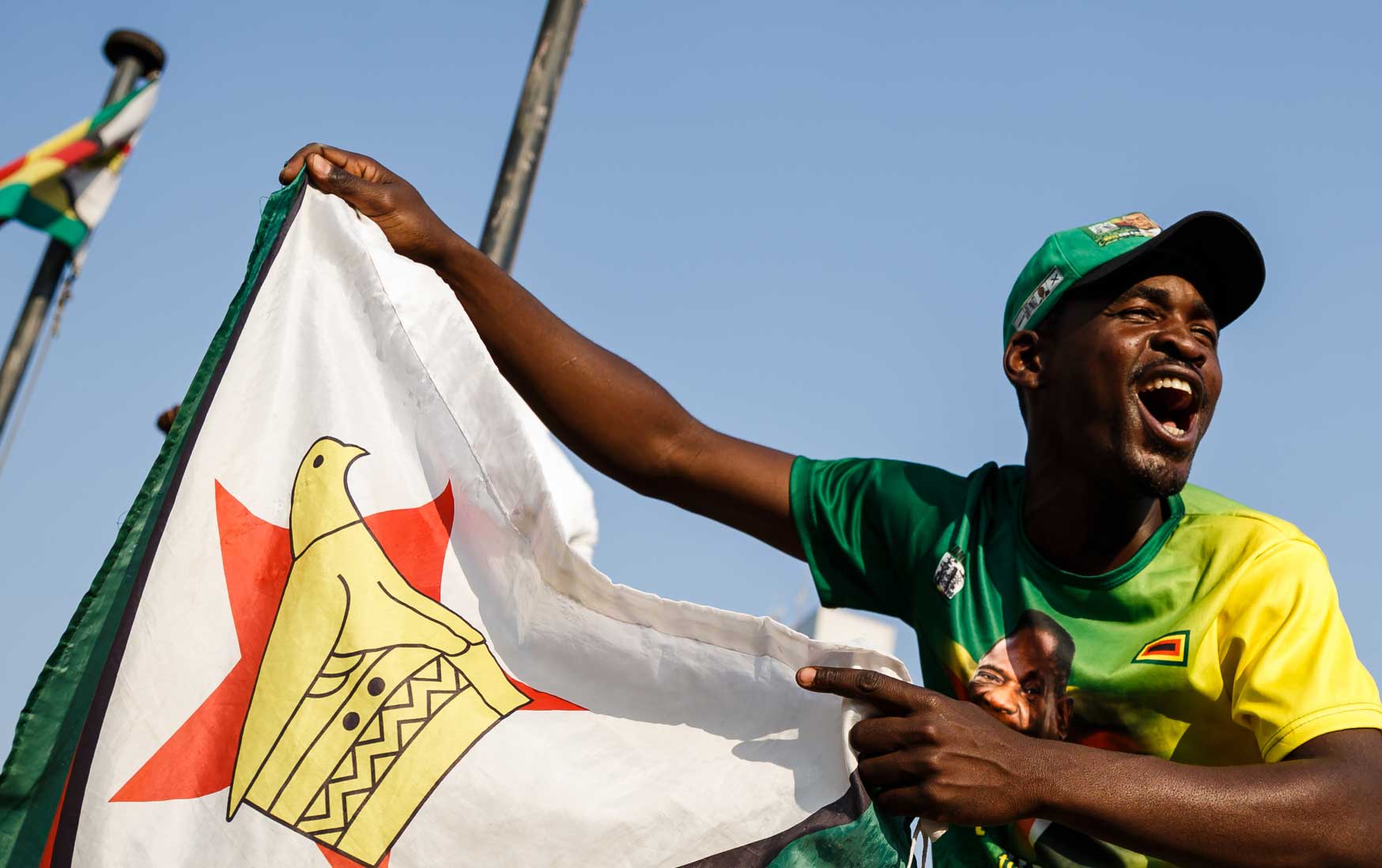
Mnangagwa said he had been expediting economic and political reforms. “Under the governance pillar, my administration is unwavering in its adherence to constitutionalism, the rule of law and the tenets of good governance and democracy. We will ensure that our laws are applied consistently, without fear or favour,” Mnangagwa told the forum. “Zimbabwe will conduct free and fair elections this year, consistent with our constitution and electoral laws. In addition, human rights concerns are being addressed in line with our country’s laws and international conventions.”
But in May last year, the European Union observer mission to Zimbabwe said progress on the implementation of reforms had been limited.
Vava, meanwhile, said Zimbabwe was “clearly headed for a flawed election”, arguing the only solution was an inclusive process to reverse the mutilation of the constitution. “This process should culminate in a transitional period where there are inclusive efforts to stabilise the economy and create a free and democratic political environment, while taking Zimbabwe out of its current pariah situation,” he said.
Barnabas Thondhlana has worked for Dow Jones and Bloomberg newswires as their Zimbabwe correspondent. He is the publisher of three community newspapers and a national daily, and a media trainer in investigative journalism. He has been instrumental in the formation of several independent newspapers, including the Zimbabwe Independent, The Daily News, The Daily News on Sunday, Newsday and The Observer.

